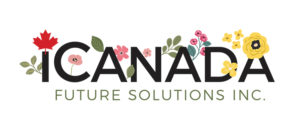Canada’s academic landscape boasts a diverse array of Master’s and Doctoral programs, attracting students from across the globe. Whether you seek specialized knowledge, career advancement, or intellectual fulfillment, exploring these programs can be a transformative journey. But before embarking, let’s delve into the statistics and trends shaping this educational arena.
Master’s Delights:
-
Diversity Reigns: From traditional Master of Arts (MA) and Master of Science (MSc) programs to professional degrees like Master of Business Administration (MBA) and Master of Education (MEd), Canada offers over 8,000 Master’s degrees across myriad fields, catering to diverse interests and ambitions.
-
Benefits Galore: Statistics Canada reports that individuals with Master’s degrees earn 21% more than those with Bachelor’s degrees, on average. Additionally, these graduates experience lower unemployment rates and increased leadership opportunities.
-
A Growing Tribe: As of 2020, over 2.3 million Canadians held Master’s degrees, representing 8.7% of the population aged 25-64. This number is steadily increasing, with women outpacing men in acquiring Master’s degrees (53% vs. 47%).
-
Diverse Faces: While data on racial and ethnic breakdowns aren’t readily available, initiatives like the 2022 Black Canadian Scholarships Fund highlight a growing focus on diversifying Master’s program participants.
-
Hotspots of Study: Business, Education, and Engineering consistently rank among the most popular Master’s program choices, followed by Health and Humanities. However, emerging fields like Data Science and Artificial Intelligence are gaining traction.
-
Earnings Edge: Master’s degree holders earn significantly more across various fields. For instance, engineers with Master’s degrees earn 58% more than those with Bachelor’s degrees, while the wage gap for educators is 39%.
-
Doctoral Distinction: Compared to Master’s degrees, Doctorates are research-focused and require original contributions to knowledge. Only 2.2% of Canadians hold PhDs, indicating their exclusivity and intense commitment required.
Online Evolution:
-
Convenience & Growth: Online Master’s programs are experiencing a surge, with their flexibility attracting students juggling work, family, or geographical constraints. Statistics Canada data shows a 43% increase in online graduate enrollments between 2016 and 2020.
-
Factors to Ponder: Before diving into the online realm, consider factors like program accreditation, faculty expertise, interaction opportunities, and technology requirements to ensure a fulfilling learning experience.
Remember, choosing a Master’s or Doctoral program is a significant decision. By exploring statistics, trends, and your aspirations, you can make an informed choice that sets you on a rewarding academic journey.
Resources :
- Government of Canada: https://www.canada.ca/en/immigration-refugees-citizenship/services/study-canada/study-permit/prepare.html
- Universities Canada: https://universitystudy.ca/canadian-universities/
- Canadian Bureau for International Education (CBIE): https://cbie.ca/
- Association of Universities and Colleges of Canada (AUCC): https://studying-in-canada.org/association-of-universities-and-colleges-of-canada/
- Info: proifr.com/international-students/general-information/





